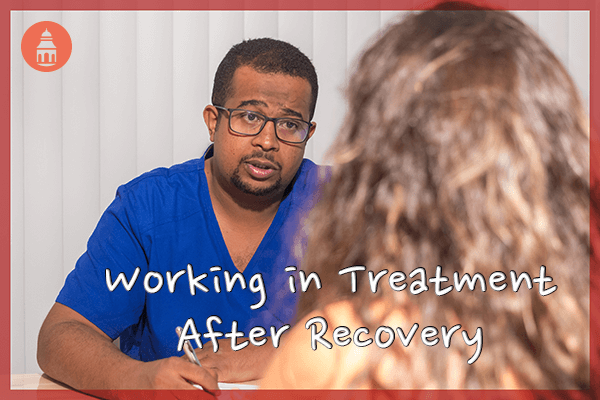
Many people in recovery find that they are uniquely qualified to help others overcome substance abuse and addiction. Energized and excited about giving back to the community that helped them to get and stay sober, they undertake a counselor certification program and soon find employment working with people who are going through exactly what they have experienced. Giving back, sharing what they have learned, and supporting others who are facing emotional trauma and triggers are wonderful ways to spend sobriety. But it is not a path that is right for everyone in recovery.
In Philadelphia this month, two addiction treatment counselors died of a drug overdose. It is not known whether they had previously struggled with addiction, but regardless, it signifies the risks that come with the job.
This is not the first time that addiction treatment counselors in recovery have relapsed while on the job. In most cases, this occurs when counselors have access to methadone that clients are taking for medication-assisted treatment as they undergo opiate addiction treatment. They may siphon a bit off multiple doses in order to get high themselves, relapsing and returning to active addiction.
Reward versus risk: There is a great deal under both columns. If you are considering becoming a substance abuse treatment counselor, it is important to take both into consideration.
Here’s what you need to know:
- There will be exposure to addictive prescription drugs. There might be clients who take methadone daily, and there may also be chronic pain patients in residence who take addictive painkillers or those who are diagnosed with anxiety who take sedatives. These medications are kept in the office under lock and key but someone must hand them out, and access to these drugs can be difficult to ignore, especially in times of great stress.
- There will be exposure to illicit drugs smuggled into the facility. It is normal for people in treatment to crave their drug of choice and attempt to bring drugs into the program. Sometimes, visitors attempt to bring in drugs as well, and the constant exposure to illicit substances can be just as much of a risk as the ongoing exposure to prescription drugs, especially if it coincides with personal stress in your life.
- Stress will be a factor. The clients you work with will experience stress, and on occasion, they will take it out on you, the counselor. Additionally, the job itself can be stressful. Too often, the budget is tight, and counselors end up taking on a huge caseload, which can entail a great deal of data collection and management. There is a high level of responsibility, which can cause stress, and it can also be difficult to lose a client to relapse and/or overdose. All of this can add up to frustration, stress, and cravings.
- A range of criminal charges may be an issue for certain choices in the workplace. Taking client medications, engaging in a romantic or sexual relationship with a client, contributing to the delinquency of clients, etc., may all lead to civil or criminal charges, especially if your choices contribute to the relapse of a client, a client leaving treatment, or a client overdose.
- It can mean exposure to people from the past. If you are local to the area, you may find that some clients are people you first met while you were active in addiction or that old acquaintances come in to visit some of the clients in residence. This can be awkward, especially if you are in any way nostalgic about your past in addiction or having a hard time connecting with a new social network in recovery, and it can contribute to the urge to relapse in some situations.
- The “cool factor” may become an issue. It is common for people in recovery to struggle with their level of self-confidence, and they may often feel that they are working hard for the approval of others – even clients. If you are not strong in your own social circle or you do not have solid boundaries in place with clients, this may be an issue that informs your choices on the job and on a personal level.
- Continued education is recommended. There is no cure for addiction, but every year, the results of new studies come out that help us to better understand how addiction develops and the treatments and therapies that are most effective, for what duration, and in what combinations. It is an ongoing process that continues to unfold every month, and as a counselor, it is imperative that you stay on the forefront of that growing body of knowledge, not only to help apply these findings to your client’s treatment plans but also to remove the therapies and treatments that are not as effective.
There are a lot of rewards to being a substance abuse treatment counselor. The long hours can be tiring, but you know that you are doing work that is necessary and needed, that you are having a positive impact on the people you work with and for, and that when you are focused on giving to other people, you are less likely to focus on perceived issues in your own life.
Choosing to become a substance abuse treatment counselor may indeed be a rewarding path for you in recovery, but it is important to be aware of the potential risks as well as the rewards and to continually check in with yourself along the way as you prepare for the position.



